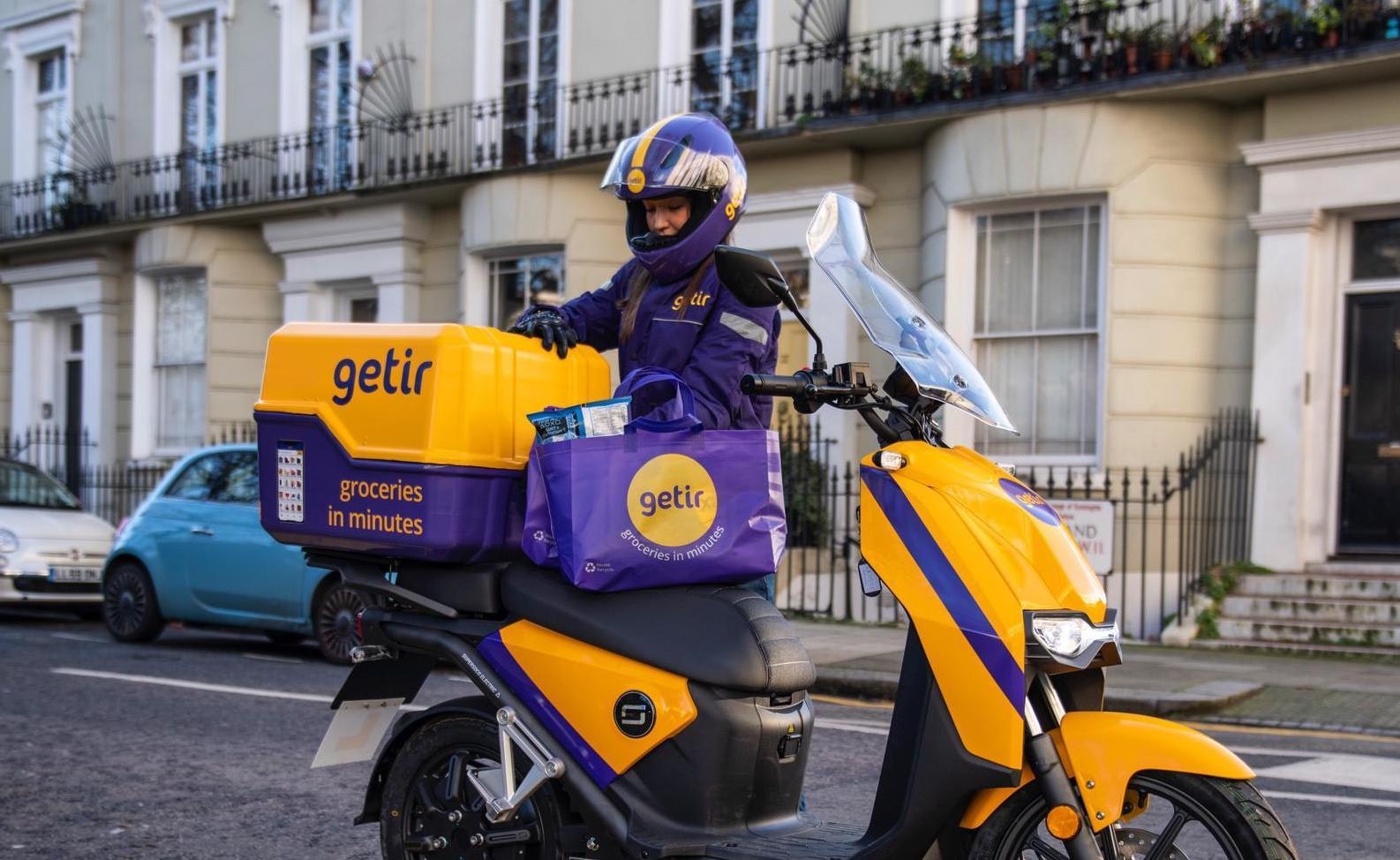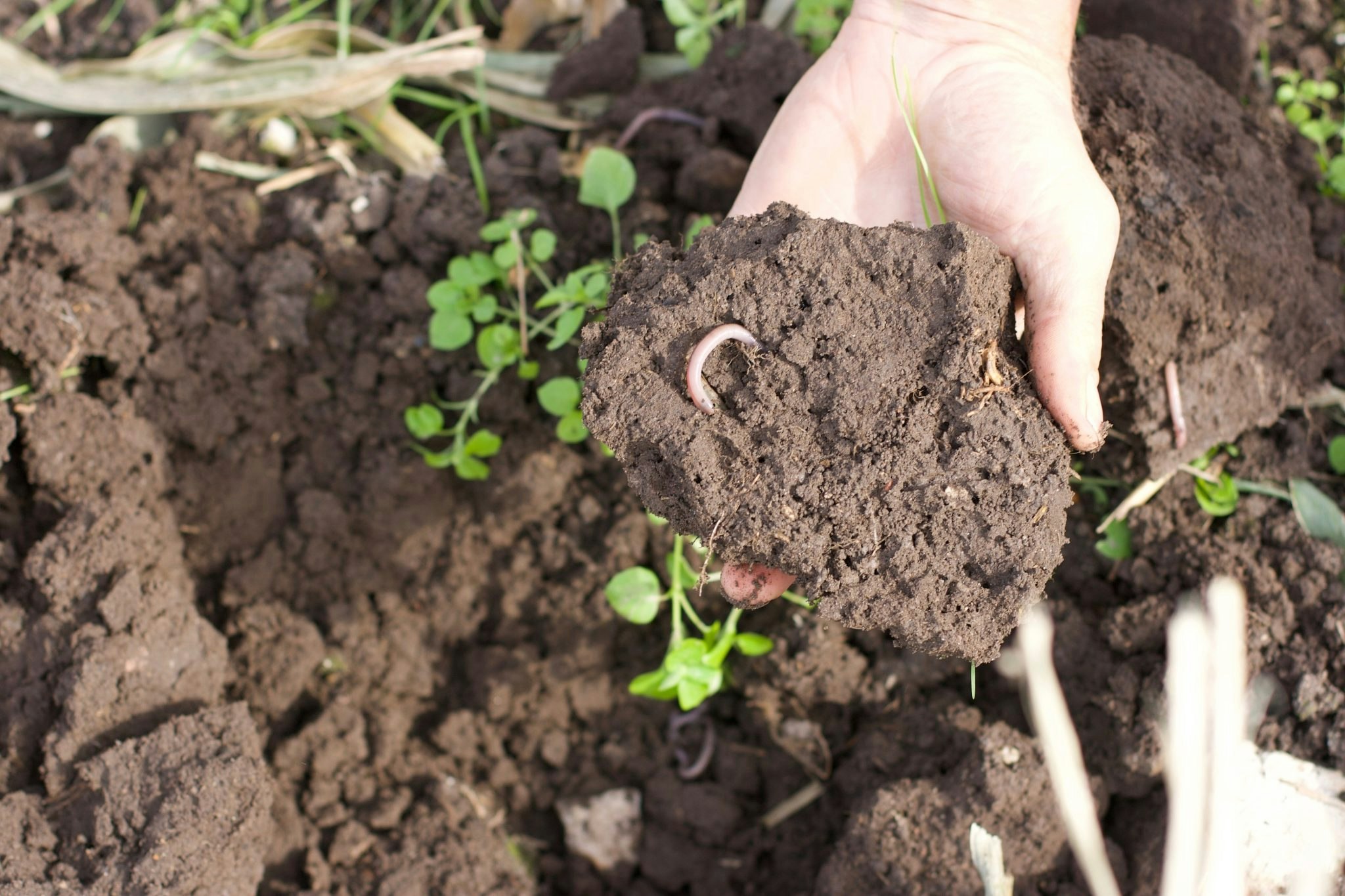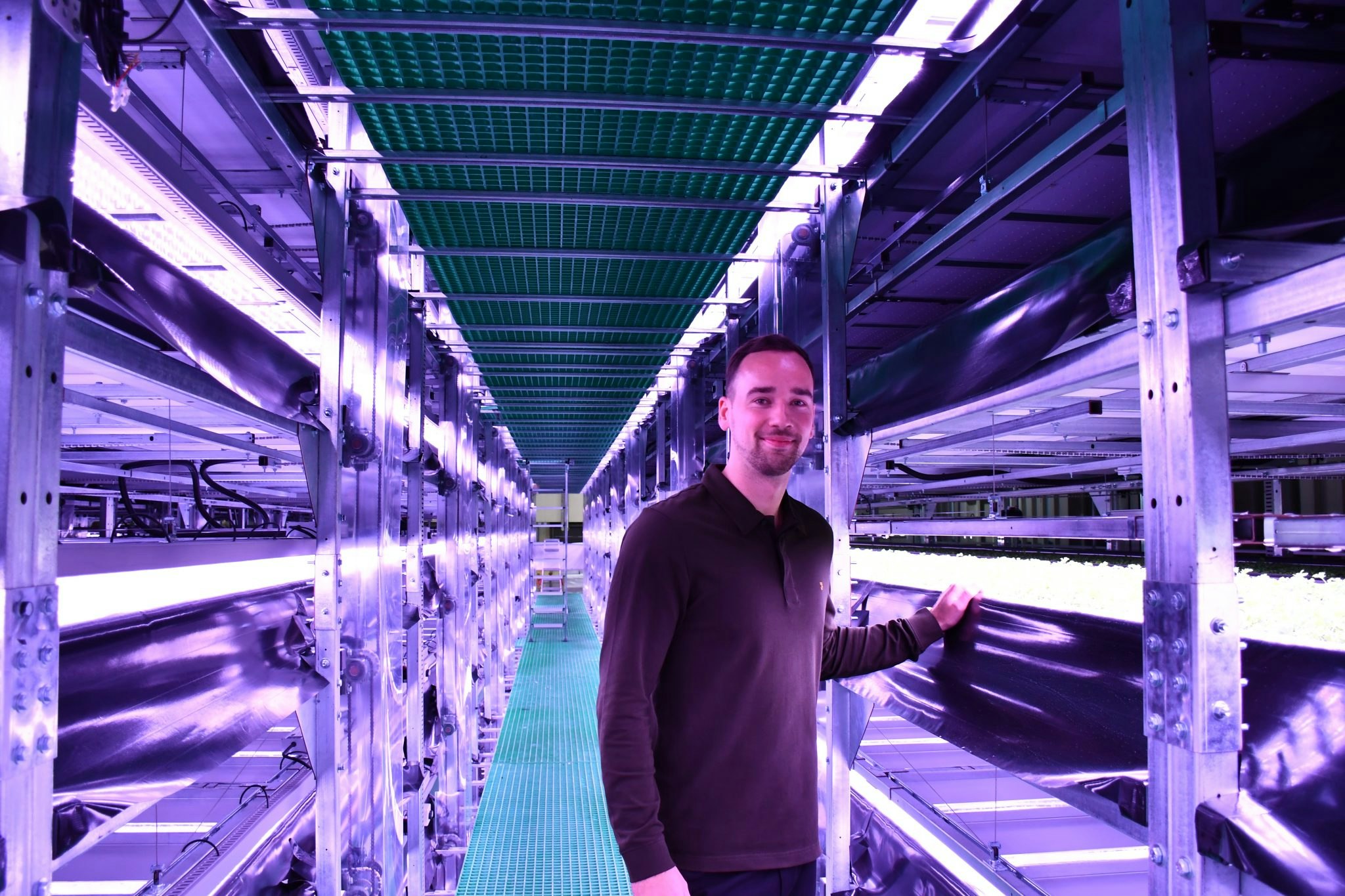Europe’s grocery sector has a plastic problem.
And as the pandemic has boosted consumer interest in getting groceries delivered (a shopping habit that’s here to stay, according to McKinsey), we are now getting more single-use plastic dropped off at our doors than ever before.
It’s estimated that 37% of all food sold at European supermarkets is covered in plastic. According to a 2020 survey from Greenpeace, UK supermarkets alone generate around 114bn pieces of single-use plastic every year, including 17.7bn wrappers for fresh fruit and veg.
A recent slew of fundraisings in the grocery startup space — including Glovo’s €450m mega-round — and the rise of 10-minute delivery services and ‘dark stores’ paint the picture of yet more plastic.
Making plastic-free grocery delivery a thing
Still, this hasn’t deterred a number of startups and supermarkets across Europe from trying to fix the problem.
In January 2021, following a £1.75m funding round last year, grocery membership club Good Club launched a reusable packaging system, which now accounts for 20% of sales. That same month, The Modern Milkman, a Yorkshire-based startup which delivers fresh, plastic-free produce, raised £5m from ETF Partners.
Later this year, Tesco will be integrating a reusable packaging scheme across its stores and delivery services with the help of Loop, a closed-loop packaging scheme by US recycling business Terracycle. This will be Loop’s second European partnership; in December 2020, French supermarket chain Carrefour announced that it would roll Loop’s service out across its stores.
But delivering groceries without the plastic packaging is not an easy thing to scale up. These services are logistically complicated — not only do groceries need to be delivered, but once empty the packaging needs to be collected, cleaned and refilled — and in order to succeed, they need suppliers, retailers and customers to be willing to take a punt.
Here are four challenges that need to be overcome.
1. Reversing the logistics
Getting groceries delivered to customers in reusable packaging is the (fairly) easy part. Much harder is figuring out how to pick up that packaging once it’s done with.
There are three ways to get this job done — create a courier network from scratch, tap into existing fleets, or combine the two.
The Modern Milkman has built out its own courier networks in Greater Manchester, Lancashire and Yorkshire, and created an app that helps drivers optimise their routes and manage pickups and deliveries. Organic online grocer Abel & Cole, which launched its plastic-free ‘Club Zero’ service in February 2020, also uses its own fleet of drivers. Reusable packaging is collected when new deliveries are dropped off.
Good Club, meanwhile, works with two courier firms: DPD for the outbound deliveries, and Hermes for next-day packaging collections (not all delivery firms offer both services).
This means it’s making twice as many trips, but the company’s founder, Ben Patten, says it’s worth it to get packaging back into circulation more quickly (therefore maximising the number of times it can be reused). At the moment, he estimates that 98% of packaging is returned within two weeks. By comparison Loop, which only collects packaging once the food inside has been eaten, gets 80% of packages back within 60 days.
For the likes of zero-waste grocery marketplaces like charrli and Era Zero Waste, based in the UK and Germany respectively, things are even more complicated. Their platforms, which connect independent zero-waste stores with local customers for delivery, have to take into account the fact that some stores are able to manage their own deliveries, but others are not. The result is a mix-and-match of different eco-friendly courier services covering different areas.
“It’s definitely been a pain point,” says Chloe Cronyn, cofounder of charrli. “We try to look for services that are local to each store. But it’s expensive — we would like to use one party.”
There is also a question of where the packaging is returned to — the suppliers, the retailers or the delivery platforms themselves? Good Club has opted for the latter, managing the washing and refilling of the pots itself, while the Modern Milkman typically sends packaging back to suppliers to be washed and sterilised. “It’s an investment — they have to change the way they work,” says Simon Mellin, The Modern Milkman’s cofounder.
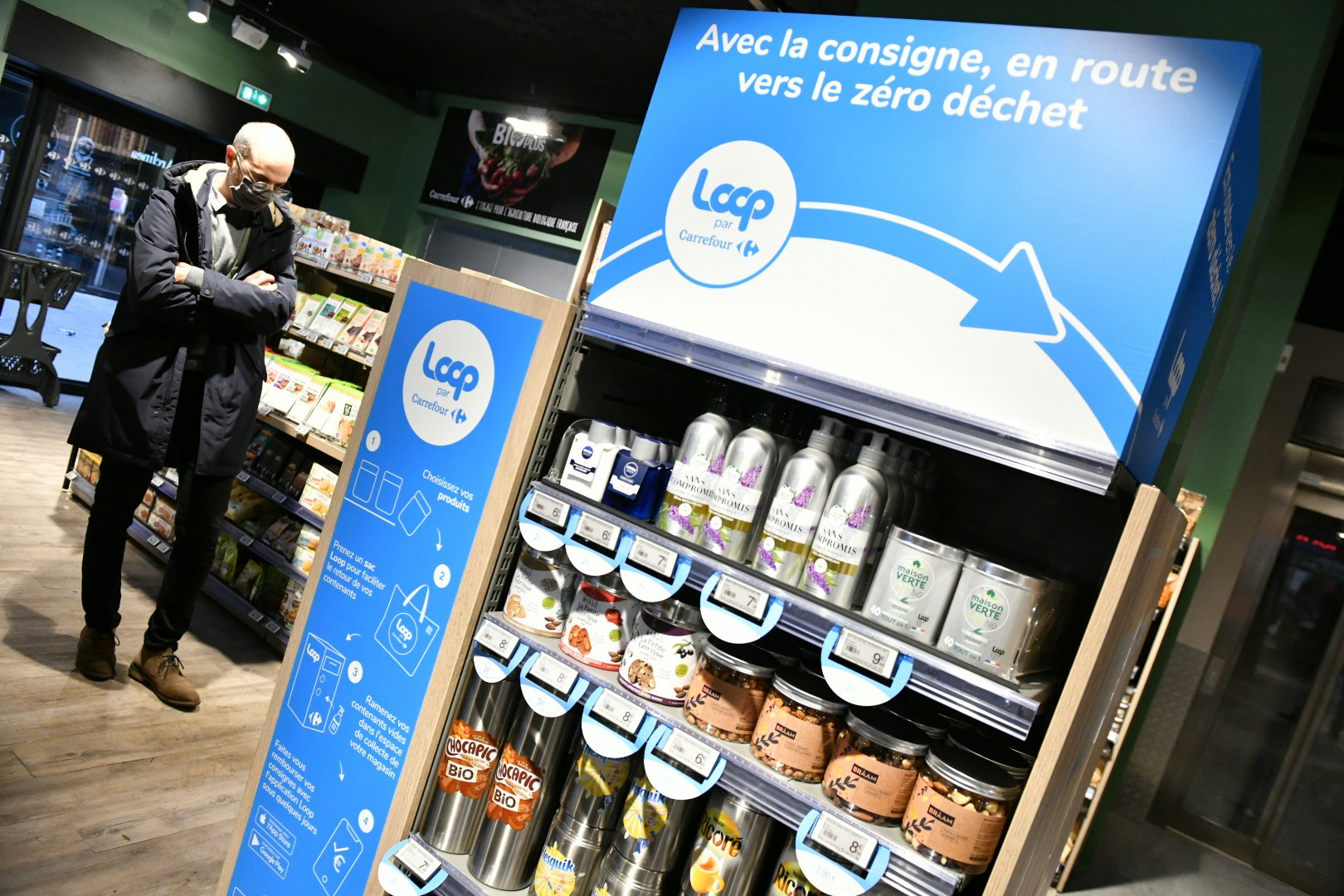
2. Picking the right packaging
Because of the complexity — and cost — that comes with picking up and washing the packaging, big baskets are essential for boosting revenues.
Ideally, this means carrying as wide a range of products as possible so that customers can do a full weekly shop in one place. But there’s a problem: packaging.
The reason packaging-free grocers are associated with bulk, ambient produce (such as lentils, nuts, rice and pasta) is because the packaging requirements for those sorts of foods is simple. Dry produce has a longer shelf life, doesn’t require controlled temperature storage and is less likely to discolour the packaging it’s kept in. While The Modern Milkman offers milk and butter, meat, fish and cheese are still rarities in the zero-plastic grocery world.
It’s a problem Era Zero Waste’s founder Livia Zimermann understands well. Prior to launching its beta grocery delivery service in partnership with 10 Berlin zero-waste stores in October, Era had tried to make a different model work: delivering refillable beauty products. After trying several different packaging solutions and struggling to make the numbers add up — including pouches that dissolved in water, and a bicycle refilling station that would fill up containers at customers’ homes — Zimermann decided to pivot.
“It didn’t really work because we had only our own products. We didn’t have a big enough portfolio,” she says. “Right now there are so many refill systems and subscriptions. It’s really complex for the customers. So we became a marketplace to provide a unified solution.”
Both Good Club (which currently sells 100 ambient products in its zero-waste range) and The Modern Milkman say they are currently developing new packaging options in order to expand their product ranges, but they're tight-lipped on the specifics.
Developing new packaging is, of course, expensive. Another option is to get the suppliers to make it themselves. This is how Loop’s system works. In order to have products sold through the scheme, brands must develop their own reusable packaging that meets Loop’s criteria on durability and reusability. As a result, Loop is able to sell Haagen Dazs icecream and Nutella spread.
The design of the packaging can also influence customer behaviour. Abel & Cole, which worked with zero-waste consultancy Unpackaged to launch Club Zero, sends its goods out in plain, boring looking pots. “The white pots are meant to be ugly, and they’re meant to not be useful for the customer because they want them to come back,” Catherine Conway, Unpackaged’s founder explains. “It’s transit packaging.”
Loop, on the other hand, takes the opposite approach, saying that its customers are happy to hold on to the packaging until they are done with the product. After that, it can either be returned at a supermarket drop-off bin, or be collected at their next order.
“People love the premium look and feel of the packages,” Tom Szaky, Terracycle’s founder says, adding that consumers often perceive products in glass or aluminium packaging as healthier and tastier (regardless of whether that’s really the case).
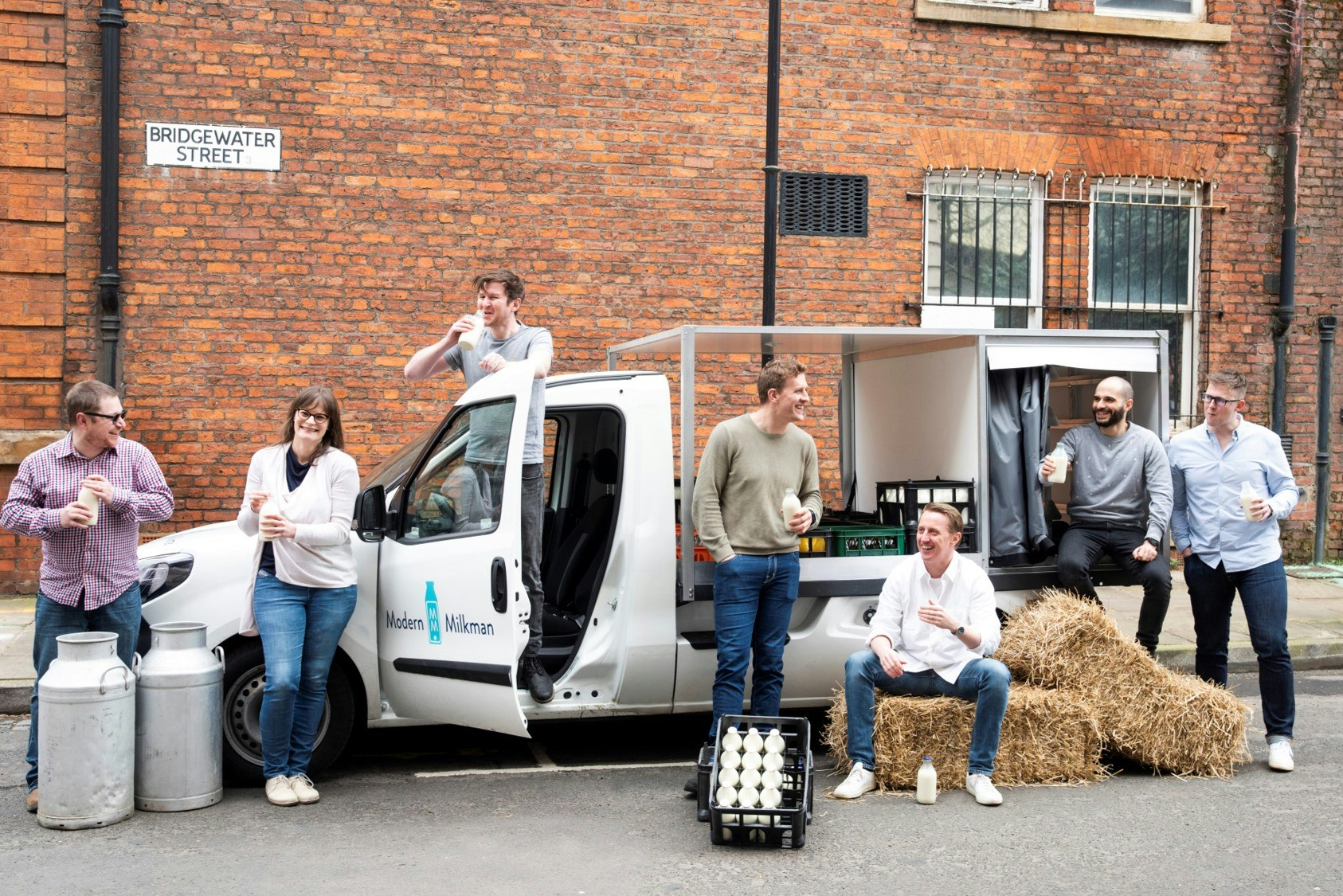
3. The price is not right (yet)
While Europe is considered a hotbed of package-free grocery activity according to Zero Waste Europe, the market is fragmented, largely made up of independent stores selling dry goods. Meanwhile, although the big supermarket chains are exploring ways to cut down plastic waste, progress on rolling out package-free solutions has been slow. In the UK, Waitrose operates a package-free service at just four of its 338 stores, while Loop’s service is currently available in just 10 of Carrefour’s 12k-plus sites.
Because these services are often operating at a small scale, it’s difficult to achieve price parity. And no matter how much consumers care about the environment, it’s going to be hard for them to justify increasing their household food bills.
On Loop’s UK website, which is run in partnership with Tesco, a 910g tin of porridge oats costs £3.90 (plus a £1 deposit for the tin). But directly at a Tesco store, the same product — albeit, in plastic packaging — can be purchased for £1.10.
Tesco will be integrating Loop’s service into its stores and delivery offering later this year, following a 12-month trial of the testing site, at which point that price gap should start to close. According to Szaky, Tesco has been keeping an eye on not only how many people are buying from the platform, but how many are making repeat purchases.
We’re the opposite of on-demand ... That allows us to be ruthlessly efficient, which then brings costs down.
The Modern Milkman has already been able to achieve price parity on products like eggs, milk and butter, and the company’s growth rates suggest it may indeed have cracked this part of the problem. Across 2020, Mellin says revenues grew by 1,100%, and it’s aiming for another eight-fold increase this year.
This efficiency comes at the cost of flexibility. “We’re the opposite of on-demand — we’re very much a planned service,” Mellin explains. “The customer is offered set delivery days per week, and they fit in line with our planning schedule. That allows us to be ruthlessly efficient, which then brings costs down.”
4. Systems change
Some challenges can’t be solved by funding rounds and marketing spend. For plastic-free grocery delivery to become anywhere near the norm for shoppers, some wider shifts need to take place.
Unpackaged’s Conway points out that in order to support reusable packaging systems, regional washing centres need to be dotted around the continent in the same way that third-party distribution centres are. “If you have high-tech regional washing facilities, then everyone can send their reusable packaging there to be washed,” she says. “This technology exists, but there’s this whole layer of infrastructure that needs to be created to support it.”
Stricter regulations around the use of throwaway plastic packaging could also unlock growth. Conway says this would “create an even playing field” and allow big supermarkets to “invest and create a business case internally” for going plastic-free (hopefully using a startup-provided service).
Some progress has been made on this front. In France — which Szaky says is “leading the way” for Loop — single-use plastic has been put on notice, with non-reusable plastic cotton buds, plates, cups, straws and cutlery now banned. A new law that would see large supermarkets in France being made to dedicate at least 20% of their shop floor to refill stations is also being debated.
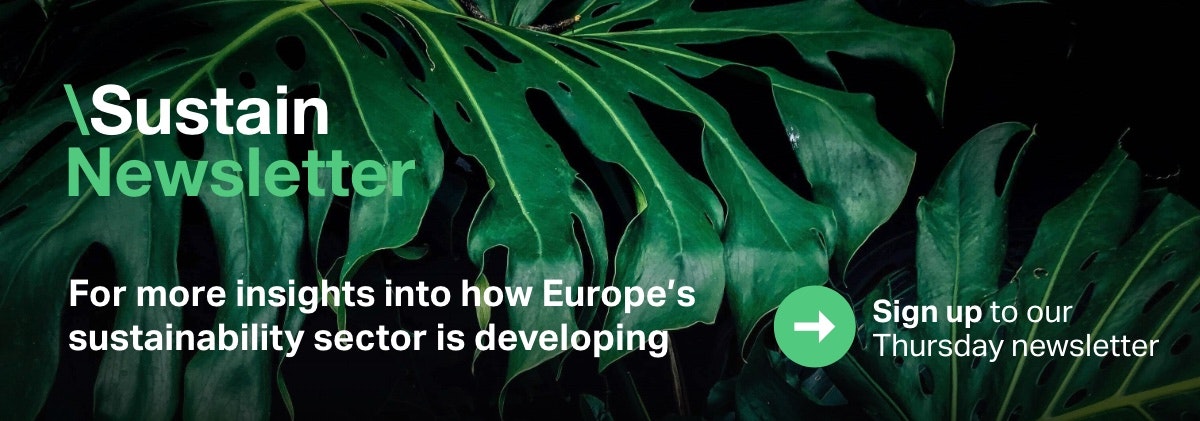
Across the EU, single-use plastics where sustainable alternatives are available will be banned from July. However, the initiative has been criticised for focusing on recycling, rather than reuse.
“What [governments] can do is artificially support the economics of reuse,” Szaky says, from banning or taxing single-use products to setting up country-wide deposit return schemes.
“I support everybody who is trying to set up a model to tackle this,” Conway concludes. “Does it work commercially? Does it work operationally? Does it work environmentally? Only by setting up and testing those things can you get those answers. And as the technology grows and more people do it, then the winner models will emerge.”
